Self and Sustainable Agriculture
It was cool and beautiful when entered Putu Nugraha's yard. Who would have thought that most of the plants in his house are rare plants with their benefits? The variety of plants begins with his hobby of collecting various types of plants. Most of Nugraha's daily routine is spending time in his garden." If I could say, 70% of my activities are gardening," said Nugraha, who also works as a yoga trainer.
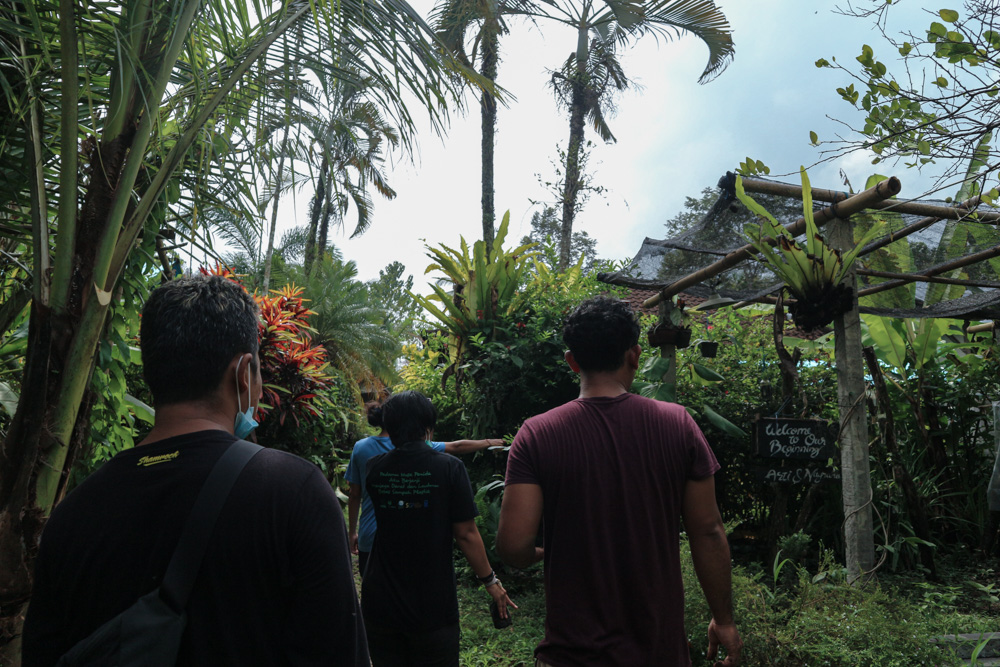 Entering Nugraha’s Yard (24/6/2021). (Photo: Gusti Diah)
Entering Nugraha’s Yard (24/6/2021). (Photo: Gusti Diah)
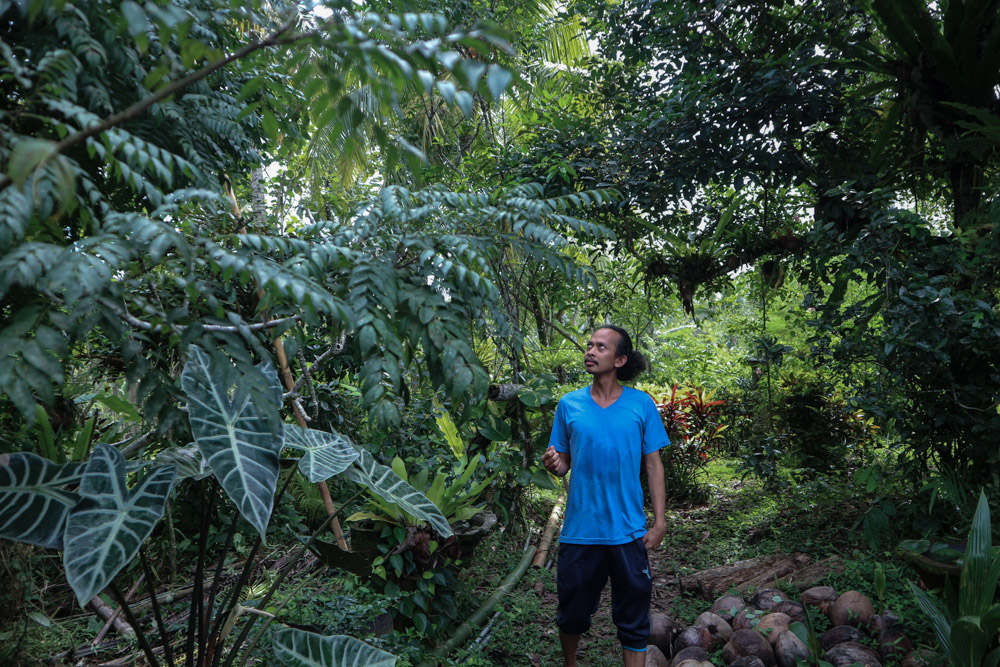 Putu Nugraha in his Yard. (Photo: Gusti Diah)
Putu Nugraha in his Yard. (Photo: Gusti Diah)
Besides love to collect plants, Nugraha also cultivates them. Indirectly he also helped preserve these rare plants. From fruits, flowers to herbal plants are in his yards, such as Sangitan, Passion Fruit, Kapundung, Orange Bali, Tamanu, Champaca, and many more.
The Beginning of Caring for Various Plants
His passion for collecting plants first appeared when Nugraha attended IDEP's permaculture training at the end of 2015. After that, the man who majored in nursing while studying at university began to pursue gardening activities. He got a new perspective from the training, which later became a provision in carrying out his daily life. "There was a significant impact when participating in IDEP's training, first understanding that agriculture is not a chase, which only races with results," explained Nugraha when we arrived at his beautiful terrace.
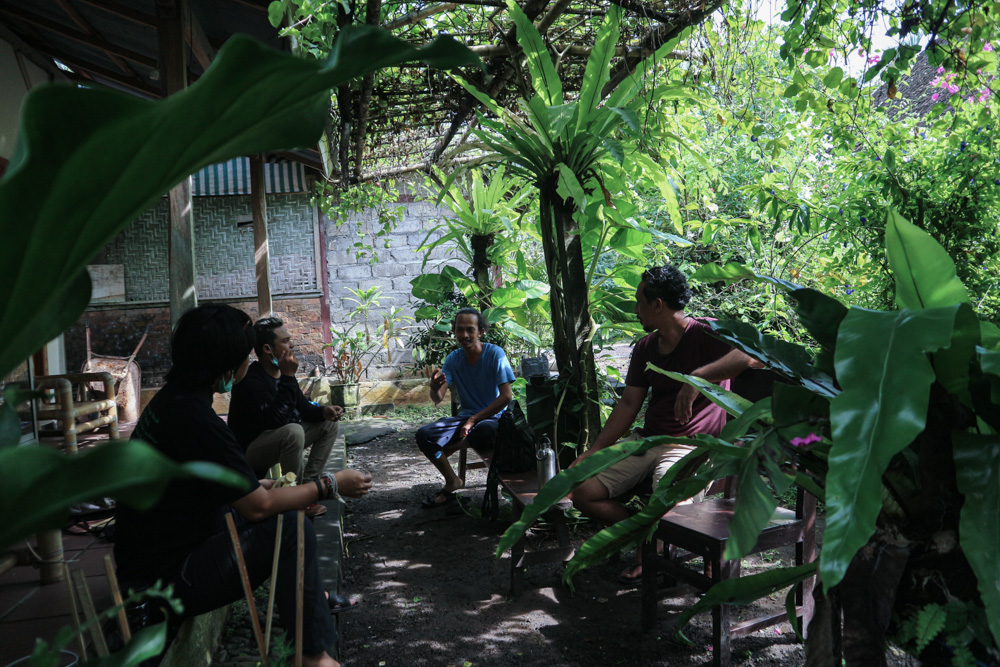
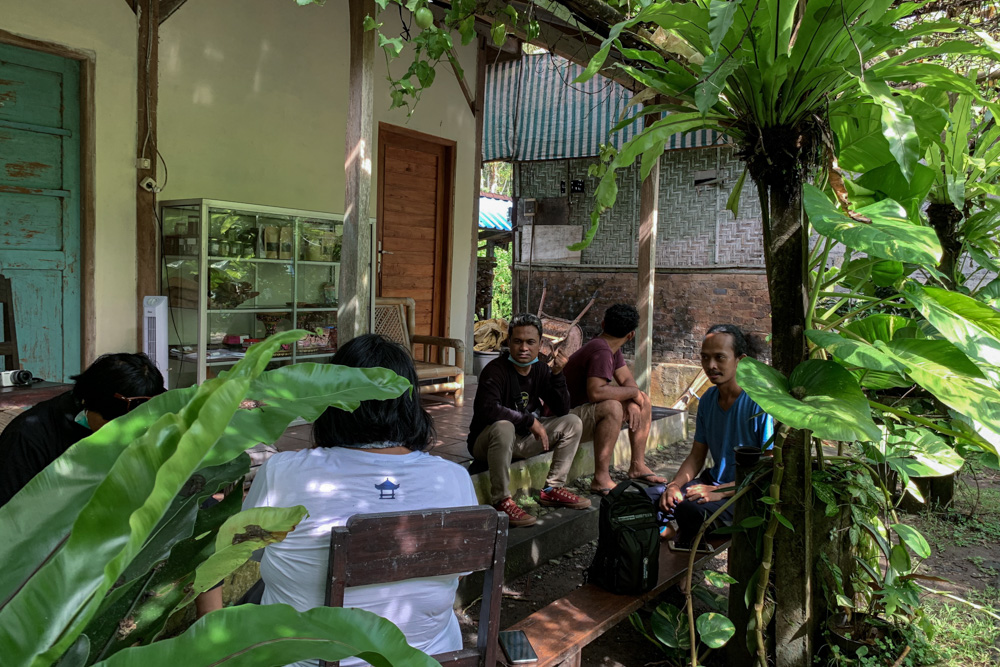 Chatting on the Nugraha terrace. (Photo: Gusti Diah)
Chatting on the Nugraha terrace. (Photo: Gusti Diah)
After the training, Nugraha starts visiting plant shops in Batuan frequently. Gradually his interest in agriculture became more visible until the opportunity to attend the same training came. Precisely in 2018, he received agricultural training information from the Whatsapp group and immediately responded enthusiastically. There was an offer for him. Without much thinking, this man from Gumbrih Village accepted the invitation to train in India. From then on, knowledge spiritually and ecologically begins to connect. Vedic Gardening is the material taught in training. "Regarding the basic principles, I see a lot of similarities between permaculture and Vedic Gardening," he said confidently.
Spiritual Agriculture
Nugraha attended an intense 10-day Vedic Gardening training in Mathura. During this time, he took Vedic Gardening philosophically and practically like, a compound of organic materials and cow dung that fertilizes plants. This practice turns out to have a strong philosophical spirituality, where the composition comes from the goddesses of prosperity.
An essential concept in the Vedic Gardening training further inspires Nugraha's enthusiasm to add various plants. "Mandala Vatika is a concept derived from Vedic Gardening that I like the most," said Nugraha, pointing his hand at the Mandala pattern on the wall.
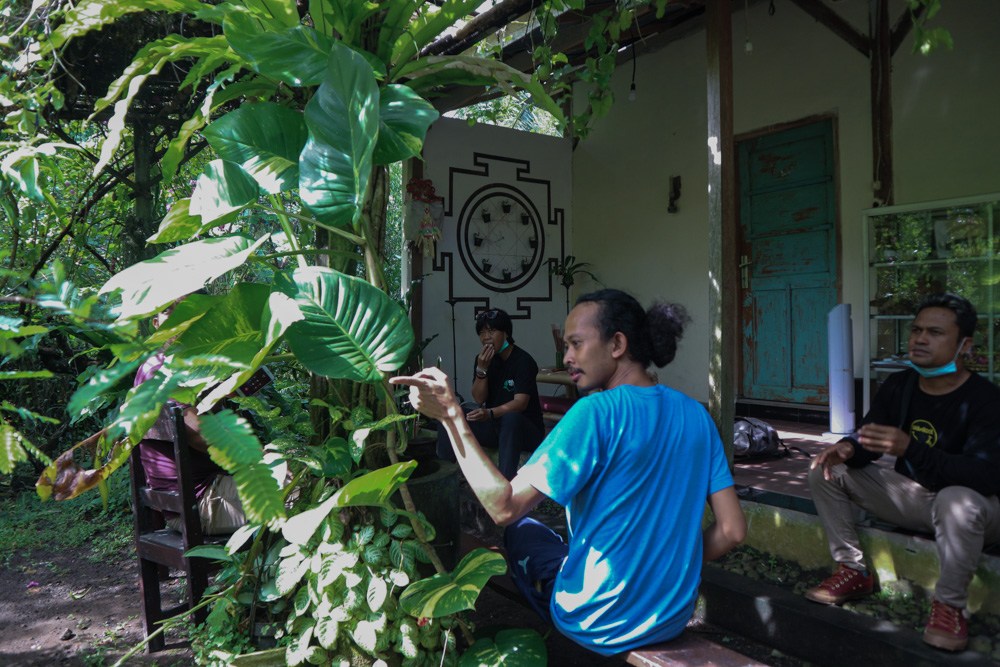 Mandala Vatika on the Nugraha’s house wall. (Photo: Gusti Diah)
Mandala Vatika on the Nugraha’s house wall. (Photo: Gusti Diah)
He also added that the Mandala is a sacred symbol, and the Vatika Mandala is a holy symbol applied to agriculture. It takes various types of sacred plants to compose it. The Vatika Mandala explains the presence of different energies in each plant.
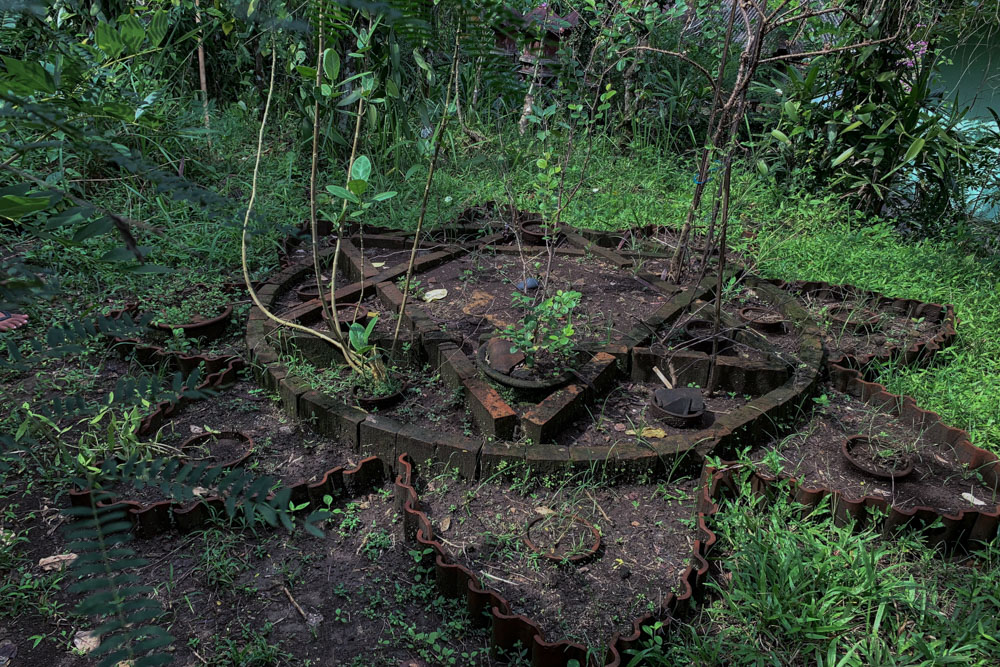 Mandala Vatika with its various types of plants.(Photo: Gusti Diah)
Mandala Vatika with its various types of plants.(Photo: Gusti Diah)
"When making Mandala Vatika, my mind focuses without being forced," said Nugraha. Therefore he feels happy to collect and cultivate rare plants that fill the Mandala Vatika. The variety of plants sometimes makes people deliberately visit Nugraha's house to look for plant species that are difficult to find anymore. People who come are usually looking for some plants for their traditional ceremonies or medicinal materials.
Gaining Harmony With Gardening
More and more people asked Nugraha for various plants. Until one day, his friend offered to buy cultivated seedlings. At first, he doesn't take it seriously, but gradually Nugraha got many orders, and he started selling various types of seedlings.
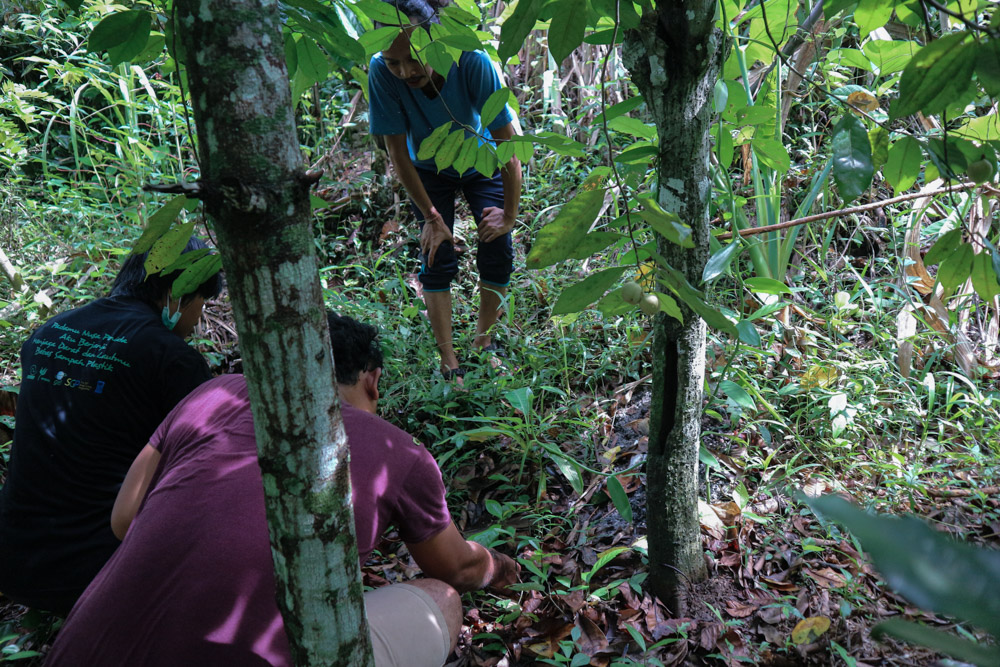
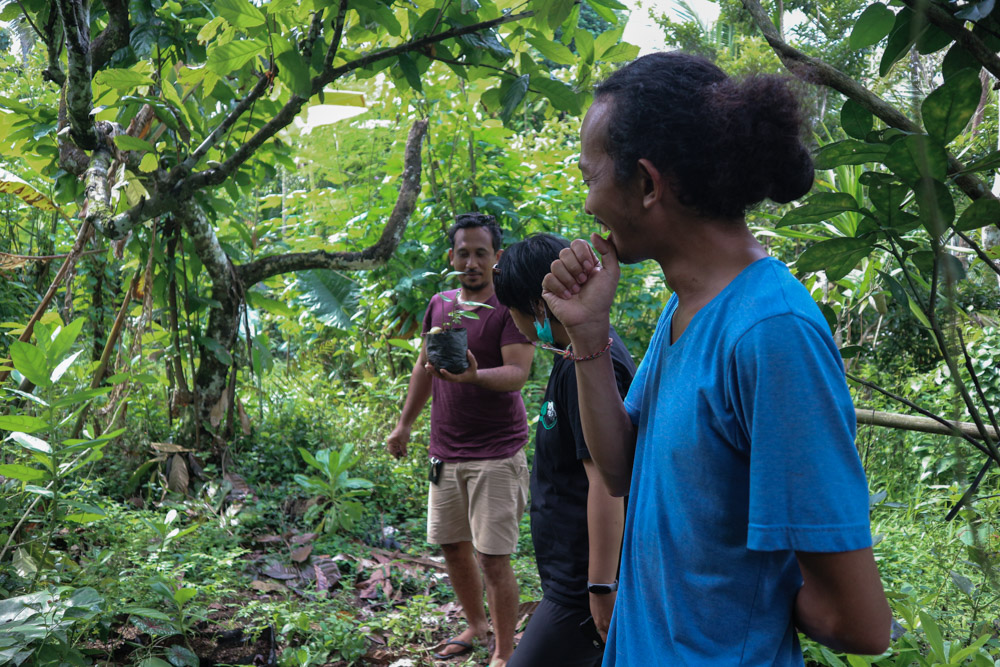 Rare seeds from the cultivation. (Photo: Gusti Diah)
Rare seeds from the cultivation. (Photo: Gusti Diah)
Apart from producing seedlings, Nugraha also started teaching agriculture in spiritual concepts. He taught several programs, such as Natural Farming (agriculture for rural communities) and Sri Living Gardening (for women in urban areas).
 Nugraha saves the seeds for replanting. (Photo: Gusti Diah)
Nugraha saves the seeds for replanting. (Photo: Gusti Diah)
 Seed Saving area. (Photo: Gusti Diah)
Seed Saving area. (Photo: Gusti Diah)
Nugraha has achieved three aspects of permaculture and Vedic Gardening principles: social, environmental, and economic. The training he received at IDEP and Mathura further solidified him in living his life as a person. The gardening activities and cultivating rare plants are relevant to the principle he holds: "farming is a sustainable activity." (Gd)
Subscribe to IDEP Newsletters
Give a gift that will change lives. 100% funds charity projects.
|






